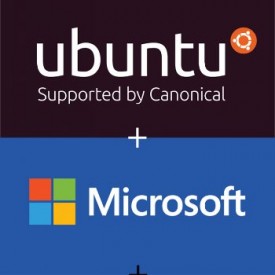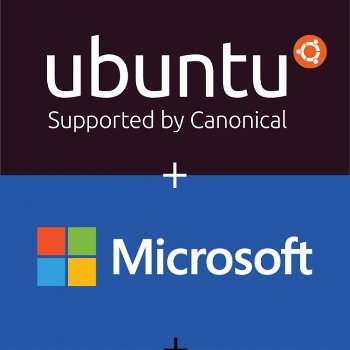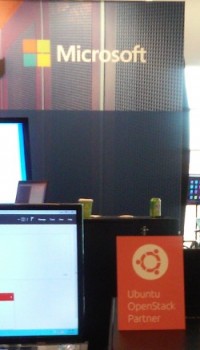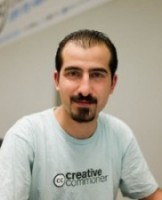Diane and I were watching the Austin local news two weeks ago and one of the features was about a guy who made 60K a…
Posts published in “Business”
Back when Edward Snowden first began revealing details of the depth of NSA spying on foreign governments and companies, as well as U.S. citizens, I said that this would end up costing U.S. tech companies dearly. Now we’re beginning to see just how much: $47 billion according to Forrester Research. As large as that figure is, it could have been worse. Back in 2013, the folks at Forrester were estimating that the stateside tech industry would take a $180 billion hit.
By design, the research company’s numbers don’t reflect the amount of money spent by U.S. taxpayers funding the NSA’s operations. Nor do they indicate how much of this $47 billion is being born by the likes of Microsoft and Oracle, as far as I can tell. What I do know is that many foreign governments have been publicly investing in Linux and open source projects since Snowden’s revelations that back doors for the NSA have been built into many proprietary U.S. enterprise software products.
Christine Hall has been a journalist since 1971. In 2001, she began writing a weekly consumer computer column and started covering Linux and FOSS in 2002 after making the switch to GNU/Linux. Follow her on Twitter: @BrideOfLinux
Last night I bought a Tracfone online. This morning, when I bring up FOSS Force on the browser, I’m greeted by an ad hawking Tracfones. Likewise, a few months ago after I purchased a coolant reservoir for my 27 year old BMW, I was greeted by ads on every site I visited for companies specializing in parts for old BMWs. We’re all used to this, right? Even if we just conduct a simple Google search, we’re liable to be followed around by ads pertaining to that search for hours, if not days or weeks.
 Well, guess what? This sort of targeting is coming to your TV soon.
Well, guess what? This sort of targeting is coming to your TV soon.
Ad buyers have been saying for quite a while that television advertising is something of a bargain these days when compared to the prices they’re paying to advertise on the Internet. Much of that has to do with targeting, which Google has perfected to a surgical science on the Internet, with a precision that pretty much hasn’t been possible on television. On TV, a company selling articles which primarily appeal to young teen age girls, for example, can buy time on a show that has high numbers in that demographic, but that’s about it — and that’s kept television time relatively cheap.
Christine Hall has been a journalist since 1971. In 2001, she began writing a weekly consumer computer column and started covering Linux and FOSS in 2002 after making the switch to GNU/Linux. Follow her on Twitter: @BrideOfLinux
A while back, my globe trotting niece Niki Starks made the drive out to our place in Taylor. We spent most of the afternoon categorizing some of the old family pictures I had haphazardly thrown into a box. There were a lot of pictures. Lots and lots of pictures. Pictures of my great grandmother, a woman I barely remember from my childhood.
I remember, at that moment, thinking just how old she looked, and she was old…94 years old. I remember attending her funeral as a young boy. My family has the custom of open casket funerals. Me? I think that practice is grotesque, but that’s just me. I’d rather my last mental image of a person be one of laughing and joy. I remember looking down on my great grandmother’s corpse and thinking she looked better laying there dead than she did the last time I saw her alive.
 And that’s the thing…
And that’s the thing…
The things we remember and the way we remember them. The four hours that Niki and I spent at our dining room table was probably the most important four hours I’ll spend for the rest of my life.
Often, I think of myself as a 61 year old orphan. Silly really…thinking of yourself like that when you are in your 60s. What solidifies that in my mind is that fact that I am the only one left alive in my direct family.
Both my parents died from various cancers and heart/liver disease. That didn’t take a psychic to see coming, given they both smoked and drank like they were in training for an Olympic event. My kid brother died in a nasty head-on truck wreck at 3:44 in the morning less than a mile from his home. I’m fairly sure that’s the time he died, because that’s the time the cracked and bent face of his watch bore when it was given to me. My sister dropped from sight shortly after receiving her share of our brother’s estate. Addicted to heroin and crack cocaine, there’s little doubt why she cannot be found. Odds favored her dying in an alley somewhere or in a cheap motel room that one of her “friends” paid for. I am still scouring the Internet for her death certificate. My older half brother Bill, Niki’s dad…he died in the hospital from heart failure. He was my boyhood hero.
Ken Starks is the founder of the Helios Project and Reglue, which for 20 years provided refurbished older computers running Linux to disadvantaged school kids, as well as providing digital help for senior citizens, in the Austin, Texas area. He was a columnist for FOSS Force from 2013-2016, and remains part of our family. Follow him on Twitter: @Reglue
Who would’ve thought it possible that digital rights management (DRM) would come to the coffee business? Well, it has. Believe it or not, Keurig now includes DRM on their coffee makers. Why? To keep users from using anything but Keurig coffee pods on their machines, of course. You know, just like the DRM used by some printer manufacturers to keep you coming back (and coming back) for their branded replacement ink cartridges instead of opting for the much cheaper store brand.

What’s worse, even some Kerug branded pods are not DRM ready, and good luck getting a refund if that turns out to be the case.
Christine Hall has been a journalist since 1971. In 2001, she began writing a weekly consumer computer column and started covering Linux and FOSS in 2002 after making the switch to GNU/Linux. Follow her on Twitter: @BrideOfLinux



 SCO started out here in my neighborhood, essentially, in Santa Cruz, California. It was called The Santa Cruz Operation (hence, SCO). That manifestation of SCO was founded in 1979 by Larry and Doug Michels, a father and son, as a Unix porting and consulting company which, over time, developed its own brand of Unix. In his book “The Art of Unix Programming,” Eric Raymond calls SCO the “first Unix company.”
SCO started out here in my neighborhood, essentially, in Santa Cruz, California. It was called The Santa Cruz Operation (hence, SCO). That manifestation of SCO was founded in 1979 by Larry and Doug Michels, a father and son, as a Unix porting and consulting company which, over time, developed its own brand of Unix. In his book “The Art of Unix Programming,” Eric Raymond calls SCO the “first Unix company.”



 The “Code of Conflict” says that if “anyone feels personally abused, threatened, or otherwise uncomfortable” while working on Linux, they should report the situation to the Technical Advisory Board who will step in and mediate.”
The “Code of Conflict” says that if “anyone feels personally abused, threatened, or otherwise uncomfortable” while working on Linux, they should report the situation to the Technical Advisory Board who will step in and mediate.”
 So on May 15, some lucky Bodhi contributor — key word here is “Bodhi contributor” — will receive “a gently used Acer C720 Chromebook powered by Bodhi Linux.”
So on May 15, some lucky Bodhi contributor — key word here is “Bodhi contributor” — will receive “a gently used Acer C720 Chromebook powered by Bodhi Linux.” 

 That was referring to the first flash sale, held Wednesday morning EU time, in which all devices being made available were sold out in “just a few hours,”
That was referring to the first flash sale, held Wednesday morning EU time, in which all devices being made available were sold out in “just a few hours,” 